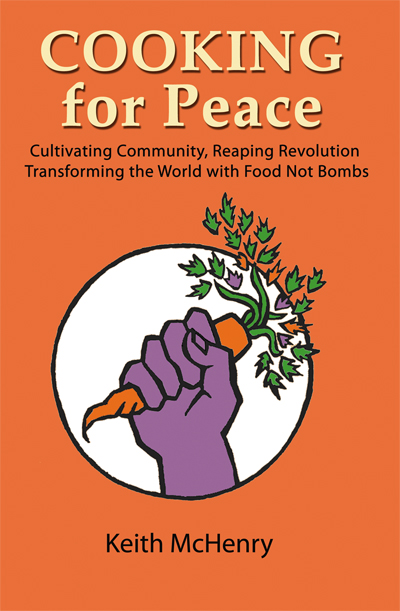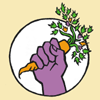 | COOKING for
PEACE Cultivating Community, Reaping Revolution Preface Page 7 The increased use of genetically engineered crops is also contributing to the global rise in hunger. The cost of food is increasing from the seeds to the plate. Corn seed prices rose 32 percent in 2009, and soybean seeds were up 24 percent from 2009 to 2010. Many farmers are not able to grow their own seeds and are now forced to buy new seeds every season from companies like Monsanto. These seed often require special chemicals to germinate and additional designer chemicals are required as fertilizers, herbicides and pesticides. Farmers are under pressure to borrow huge sums from banks to purchase the chemicals and equipment required in their contracts with suppliers and buyers. Tens of thousands of farmers are forced off their land each year as they find it impossible to pay their loans. Hundreds of farmers commit suicide each year, distraught over losing a way of life passed on from generation to generation. Thousands of acres of fertile land are sold to housing speculators or retail malls just to pay off loans incurred trying to farm genetically engineered products. With little in the way of competition, seed prices will increase. Just 10 global corporations control 67% of the commercial seed industry with half of that being controlled by Monsanto, DuPont, and Syngenta. "We now believe that Monsanto has control over as much as 90 percent of (seed genetics). This level of control is almost unbelievable," said Neil Harl, agricultural economist at Iowa State University, who has studied the seed industry for decades. "The upshot of that is that it's tightening Monsanto's control, and makes it possible for them to increase their prices long term. And we've seen this happening the last five years, and the end is not in sight." If a farmer tries to harvest their own seeds they can be sued by Monsanto. The company claims they get as many as 500 tips a year about farmers harvesting their own seeds or otherwise failing to pay Monsanto for seeds that may have been contaminated with their genetic information. Percy Schmeiser might be the most famous farmer of Monsanto's victims after the company contaminated his canola crop; canola that was handed down from his father and grandfather, cultivated for nearly a hundred years on his family's farm in Bruno, Saskatchewan. Homan McFarling was also sued by Monsanto for planting seeds he had saved from the year before at his 5000 acre farm in Shannon, Mississippi. Some farmers have even been sentenced to jail for "hiding" seeds from Monsanto, seeds contaminated by Monsanto. This contamination is not limited to commercial farmers. Hopi elders claim that thirty percent of their ancient corn may have been cross pollinated with genetically engineered crops. |
